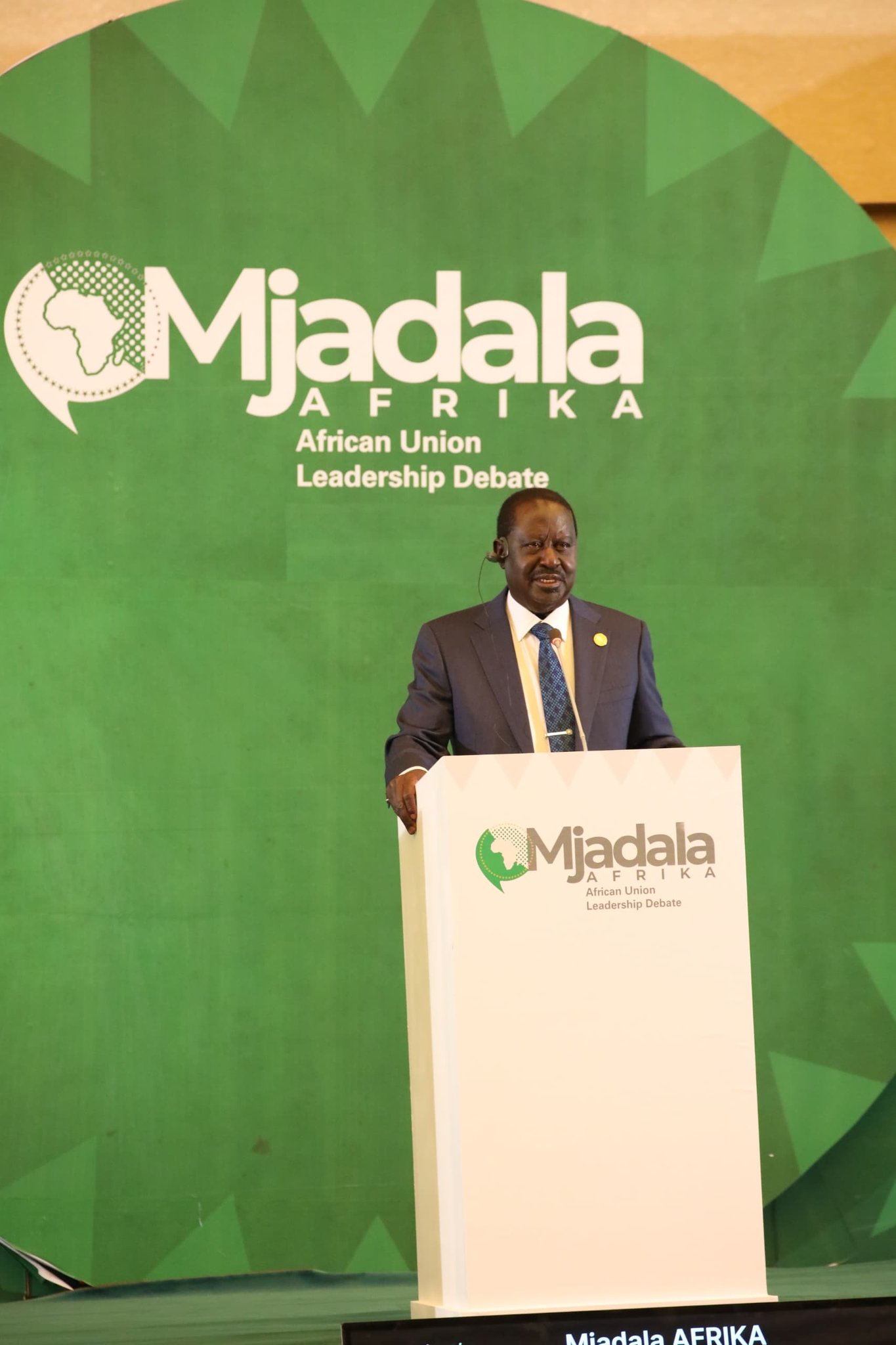
Raila promises to rally for 2 permanent African seat in UN Security Council » Capital News
NAIROBI, Kenya, Dec 14—Kenya’s candidate for the African Union Commission Chairperson, Raila Odinga, has pledged to spearhead efforts to secure two permanent seats for Africa at the United Nations Security Council (UNSC).
Speaking during the Mjadala Afrika Leadership Debate on Friday in Ethiopia’s capital, Addis Ababa, Odinga emphasized the urgent need to address Africa’s historical exclusion from global decision-making processes, particularly at the UNSC, which wields significant influence over international peace and security.
“This is something that [is] long overdue,” Odinga declared, noting that the time had come for the UN to revisit the composition of the powerful and influential council.
“The UN [was] formed when most parts of Africa were colonies, and that [is] why the UN structure as it stands today does not reflect the realities of the modern world.”
Odinga made these remarks as he faced off against two other contenders for the AU Commission Chairperson seat—Djibouti’s Mohamoud Ali Youssouf and Madagascar’s Richard Randriamandrato.
He argued that it is “unacceptable and untenable” for five countries to hold veto power at the Security Council while Africa—a continent of 1.4 billion people—remains unrepresented.
Undemocratic
The UNSC currently comprises 15 members: five permanent members with veto power (China, France, Russia, the United Kingdom, and the United States) and ten non-permanent members elected for two-year terms.
Notably, more than 50 UN member states, many from Africa, have never been represented on the Council.
Odinga stated that Africa’s 55 sovereign nations deserve equitable representation, highlighting Europe’s three permanent seats as evidence of disproportionate global influence.
“We are going to insist that Africa must get two permanent seats at the UN Security Council,” Odinga said.
“This is only fair because we are a continent of 55 sovereign nations.”
Odinga added Africa’s exclusion in the Council was untenable while Europe has three permanent representatives on the Security Council.
“Permanent representation with veto powers is a must for Africa, and this is something I will insist on when I am elected,” he stated.
If elected, Odinga expressed his commitment to collaborating with Africa’s leadership to ensure the continent receives fair treatment on the international stage.
Odinga’s pledge aligns with a unified stance among African nations advocating for UNSC reforms.
Ruto, Kagame campaign
Kenya’s President William Ruto and his Rwandan counterpart, Paul Kagame, are among the leaders who have been vocal in calling for these reforms.
In September, Kagame underscored the need for comprehensive reforms within the African Union (AU) before Africa could fully benefit from the US proposal supporting two permanent UNSC seats for African nations.
Kagame suggested that one seat should represent the AU Commission, while the other should rotate among African countries to reflect the continent’s collective interests.
This position came after warnings from Ambassador Martin Kimani, Executive Director at New York University’s Center on International Cooperation, who urged strategic caution.
Kimani highlighted the risk of division if Africa pursued UNSC seats without first addressing internal AU reforms. He expressed concerns that without proper reforms, the U.S. offer could lead to infighting and manipulation by global powers, undermining Africa’s unity.
Kimani stressed that Africa’s priority should be internal unity and AU reform, which would enable the continent to demand its rightful place on the UNSC through a strong, united front.
He also called for accelerating the implementation of the African Continental Free Trade Area (AfCFTA) and strengthening the AU’s Peace and Security Council to enhance decision-making and security across the continent.
Ambassador Linda Thomas-Greenfield voiced US support to for UNSC reform expressing support for a more inclusive and representative Council.
Currently, African nations take three non-permanent UNSC seats on a rotating basis for two-year terms.
However, Thomas-Greenfield emphasized that these elected seats do not allow African countries to fully contribute to the Council’s work.
About The Author